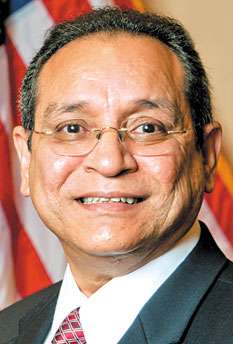
Processing Your Payment
Please do not leave this page until complete. This can take a few moments.
-
News
-
Editions
-
- Lists
-
Viewpoints
-
HBJ Events
-
Event Info
- 2024 Economic Outlook Webinar Presented by: NBT Bank
- Best Places to Work in Connecticut 2024
- Top 25 Women In Business Awards 2024
- Connecticut's Family Business Awards 2024
- What's Your Story? A Small Business Giveaway 2024 Presented By: Torrington Savings Bank
- 40 Under Forty Awards 2024
- C-Suite and Lifetime Achievement Awards 2024
- Connecticut's Health Care Heroes Awards 2024
-
-
Business Calendar
-
Custom Content
- News
-
Editions
View Digital Editions
Biweekly Issues
- April 15, 2024
- April 1, 2024
- March 18, 2024
- March 4, 2024
- February 19, 2024
- February 5, 2024
- January 22, 2024
- January 8, 2024
- Dec. 11, 2023
- + More
Special Editions
- Lists
- Viewpoints
-
HBJ Events
Event Info
- View all Events
- 2024 Economic Outlook Webinar Presented by: NBT Bank
- Best Places to Work in Connecticut 2024
- Top 25 Women In Business Awards 2024
- Connecticut's Family Business Awards 2024
- What's Your Story? A Small Business Giveaway 2024 Presented By: Torrington Savings Bank
- 40 Under Forty Awards 2024
- C-Suite and Lifetime Achievement Awards 2024
- Connecticut's Health Care Heroes Awards 2024
Award Honorees
- Business Calendar
- Custom Content
SBA outlines loan criteria for CT companies
U.S. Small Business Administration (SBA) Deputy District Director Julio S. Casiano went online Wednesday morning to address the subject most urgent in the minds of Connecticut business people this week: disaster relief.

Casiano took part in a webinar hosted by the Greater New Haven Chamber of Commerce Wednesday morning on “Understanding SBA Loans.” The session, hosted by GNHCC President Garrett Sheehan, also featured panelists Joseph Williams of the Connecticut Small Business Development Center and Glendowlyn Thames, deputy commissioner of the state’s Department of Economic & Community Development (DECD).
Beginning this week Connecticut became one of the first three states in the nation (along with Maine and Rhode Island) to make available Economic Injury Disaster Loans (EIDLs) to state-headquartered companies that have been adversely impacted by the coronavirus outbreak.
The initiative makes available loans of up to $2 million to qualifying small businesses and non-profit organizations. These are working-capital loans used to address economic injury already incurred as a result of the crisis as well as to continue operations at a time of reduced revenue streams as a result of the crisis.
According to Casiano, in addition to direct economic injury, EIDL loans are available “to pay fixed debts, payroll, accounts payable and other bills that could have been paid had disaster not occurred.”
The SBA deputy director outlined who could apply for immediate relief, and how.
Eligibility
Casiano said the SBA had made eligibility requirements for small businesses applying for disaster-relief loans as broad as was practical. Eligible companies are those directly impacted by the COVID-19 crisis, those indirectly impacted and also companies that provide goods and services to businesses in either of the first two groups.
Criteria
Casiano said that although EIDLs are emergency measures, companies must nevertheless meet certain criteria to qualify for the loans of up to $2 million. These include:
- A proven credit history acceptable to the SBA for loans in excess of $25,000
- Ability to repay the loan (“If you’re asking for $200,000, you must show us the ability to pay that back,” Casiano explained.)
- Applicant companies must be headquartered in one of the “declared counties” qualifying for relief — which includes all eight Connecticut counties.
Terms
Casiano said the SBA had made terms for EIDLs as generous as possible:
- A repayment annual interest rate of 3.75 percent for approved small businesses
- An annual percentage rate of 2.75 percent for qualifying non-profit organizations
- Repayment terms of up to 30 years.
Collateral
Although SBA EIDL loans are intended as an emergency measure, collateral is nevertheless required for loans in excess of $25,000. Casiano said his administration would accept real estate as collateral when available. He also added that “the SBA will not decline a loan application for lack of collateral” alone.
Who can apply
Qualified small businesses include hotels, recreational facilities, restaurants (“We’ve been flooded with calls” from restaurants, Casiano noted), retailers, manufacturers, travel agencies, wholesalers and others.
Qualified private non-profit organizations include nursing homes, museums, educational facilities, day-care and senior centers and others, Casiano said. Non-qualifying non-profits would include religious and charitable organizations, he added.
Filing requirements
Loan applicants may apply online at disasterloan.sba.gov LINK. Applicants should be prepared to provide:
- A completed loan application
- Authorization for the SBA to access applicant’s business tax information (typically using IRS Form 4506T)
- Most recent federal tax return
- A schedule of liabilities (SBA Form 2202)
- A personal financial statement for all principals of the business holding more than 20 percent of stock in the corporation (SBA Form 413).
Casiano emphasized that the SBA would work to be as flexible as possible with loan applicants during the period of crisis. “Don’t be concerned, for example, if you’ve only been in business for three months and don’t have financial statements,” he said. “We will work with you.”
Information on using electronic filing to apply for EIDL is available at disasterloan.sba.gov/ela. Applicants may also phone 800-659-2955 for direct assistance.

2022 Giving Guide
This special edition informs and connects businesses with nonprofit organizations that are aligned with what they care about. Each nonprofit profile provides a crisp snapshot of the organization’s mission, goals, area of service, giving and volunteer opportunities and board leadership.
Learn more
Subscribe
Hartford Business Journal provides the top coverage of news, trends, data, politics and personalities of the area’s business community. Get the news and information you need from the award-winning writers at HBJ. Don’t miss out - subscribe today.
Subscribe
2024 Book of Lists
Delivering Vital Marketplace Content and Context to Senior Decision Makers Throughout Greater Hartford and the State ... All Year Long!
Read Here-
2022 Giving Guide
This special edition informs and connects businesses with nonprofit organizations that are aligned with what they care about. Each nonprofit profile provides a crisp snapshot of the organization’s mission, goals, area of service, giving and volunteer opportunities and board leadership.
-
Subscribe
Hartford Business Journal provides the top coverage of news, trends, data, politics and personalities of the area’s business community. Get the news and information you need from the award-winning writers at HBJ. Don’t miss out - subscribe today.
-
2024 Book of Lists
Delivering Vital Marketplace Content and Context to Senior Decision Makers Throughout Greater Hartford and the State ... All Year Long!
ABOUT
ADVERTISE
NEW ENGLAND BUSINESS MEDIA SITES
No articles left
Get access now
In order to use this feature, we need some information from you. You can also login or register for a free account.
By clicking submit you are agreeing to our cookie usage and Privacy Policy
Already have an account? Login
Already have an account? Login
Want to create an account? Register
Get access now
In order to use this feature, we need some information from you. You can also login or register for a free account.
By clicking submit you are agreeing to our cookie usage and Privacy Policy
Already have an account? Login
Already have an account? Login
Want to create an account? Register






0 Comments